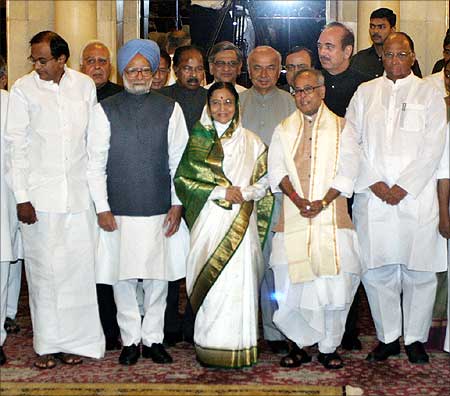
The Budget is expected to contain measures to accelerate growth while being fiscally prudent.
The Union Budget 2009-10, to be presented on July 6, will be notable in more ways than one.
With the United Progressive Alliance getting a reasonably strong mandate in the May 2009 elections and the absence of major opposition from alliance partners, the market is expecting the Budget to announce bold measures to enhance economic growth in an 'inclusive' manner as well as introduce structural reforms.
Text: Smart Investor Team
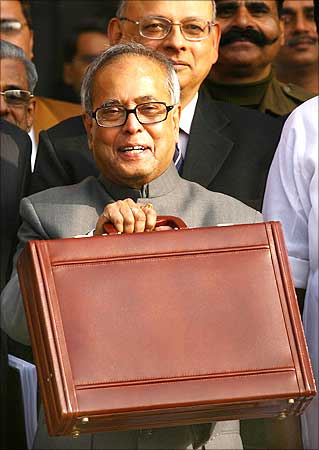
Markets will also be keenly watching out for signals that indicate the government's stance on key economic policies.
Striking the right balance
In an environment of slowing growth in India and abroad, the Budget is expected to take steps to revive domestic demand with a thrust on accelerating infrastructure spending (more importantly, to clear hurdles and speed up the pace of project execution).
There is also a strong belief that export-oriented and labour intensive sectors (textiles, apparels, gems, jewellery, leather) will receive extra attention.
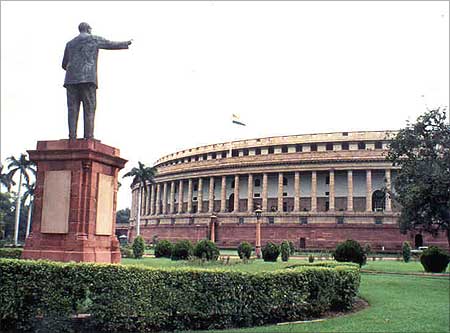
Says Manish Sonthalia, senior VP Research & Strategy, Motilal Oswal Securities, "The external sector is actually bleeding given the 30-35 per cent y-o-y decline, thus expect the sector to get a lot of attention."
Among relief measures expected are interest rate and tax subsidies as well as higher export incentives. Likewise, given the UPA's stated policy of achieving 'inclusive' growth, the market is expecting sops for agriculture sector and rural India.
Says Nischal Maheshwari, head of Research, Edelweiss Capital, "Apart from measures for industry, there would be announcements pertaining to social infrastructure spending (schemes like NREGA) as well as for the common man."
For the latter, an increase in tax breaks on housing loans and lower taxes could materialise, aimed at encouraging higher consumption. The moot questions that come to the mind are how the government will bridge the revenue shortfalls and whether it will increase taxes for India Inc.

Sonthalia believes that some rationalisation in duties (excise and import) could happen. Levies on inputs could also be rationalised to bring it in line with end products.
There is a possibility of some sectors seeing the excise duties getting restated to levels prior to those existing before the stimulus packages were announced.
In simpler words, no major increase in taxes is expected. The government, however, is seen augmenting resources from the auction of 3G licenses (over Rs 30,000 crore) and selective divestment in public sector undertakings. These steps would help lower the fiscal burden, and encourage low real interest rates.
Broader expectations
Among key announcements, the market is hoping for a clear roadmap towards implementing goods and services tax by March 2010, which will eliminate the multiple taxes existing currently.
Experts are hoping that the fringe benefit tax, which contributes only 2 per cent to government's revenues, will be abolished as it involves huge administrative burden.
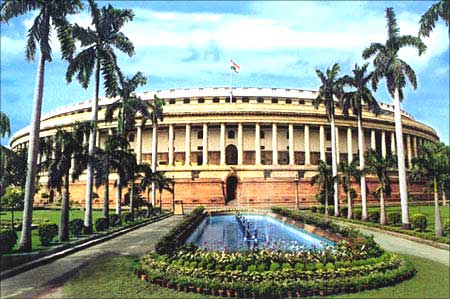
To sum up, while there are many expectations, some of it may just find a mention in the Budget with more details being spelt out later (like de-control of retail fuel prices and divestment). What's important is that even as hopes are running high, there is a sense of pragmatism about what can be achieved.
Says Sonthalia, "The markets will like to see an environment for growth and at the same time expect that the deficit be kept under control."
A populist Budget, however, is unlikely to go well with the markets. To know more on the expectations for individual sectors and its likely impact, read on.

Auto
On the back of excise duty cuts, drop in lending rates and new vehicle launches over the last six months, the industry has seen a revival of sorts with vehicle sales experiencing double digit growth between February and April.
While auto companies want the government to continue with the 8 per cent excise duty for smaller cars, they want the benefit to be extended to larger cars and utility vehicles; current duty is about 22 per cent.
However, some believe that the government might hike duties as a few manufacturers did not pass on the benefits of the duty cuts on small cars to consumers on their best selling models.
The industry's biggest pain point, however, has been the medium and heavy commercial vehicles which saw a 33 per cent y-o-y volume drop in 2008-09. The depreciation benefit on new CVs, which was extended to September from March 2009, could be pushed to March 2010.
The sector has also been asking for concession for UVs used in rural areas, rationalisation of VAT and provisions to boost vehicle exports.
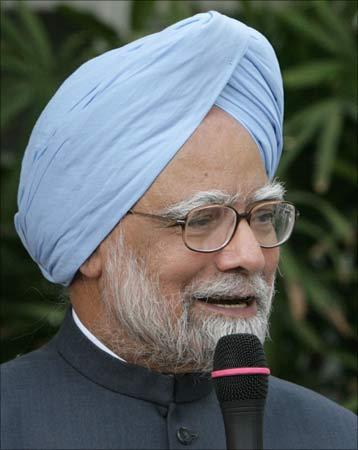
Cement
The big boost for cement companies would come in the form of increased infrastructure spending and, incentives to the housing sector and rural India. This would help improve volumes and prove to be a boon, given that large capacities are expected to go on stream (over two years) possibly leading into an over-supply situation.
The industry is also hoping that the VAT rate will be lowered in line with other sectors, while a uniform rate of excise duty should replace the current MRP-based system. While such measures would be positive for companies, analysts don't expect the duty cuts or rationalisation to happen.
In fact, analysts at Angel Broking expect the government to increase excise duty from 8 per cent to 10 per cent, as cement companies have not completely passed on the benefits of excise duty reduction announced in April 2009.

FMCG
While the FMCG sector is more likely to gain indirectly led by focus on rural India or due to measures like implementation of GST next year, any reduction in VAT rate on biscuits from 12.5 per cent currently to 4 per cent should be positive for Britannia and ITC. Likewise, reduction in central sales tax from current 2 per cent levels will also be positive for all companies.
On the flip side, some analysts expect the government to roll-back the excise duty cuts done earlier. Should that happen, companies could pass on the increased costs by hiking prices and hence, the impact may not be really negative.
Analysts believe that there is a high probability of a hike in excise duty on cigarettes. However, any major increase (over 7 per cent) could potentially impact volume growth of cigarette companies like ITC.
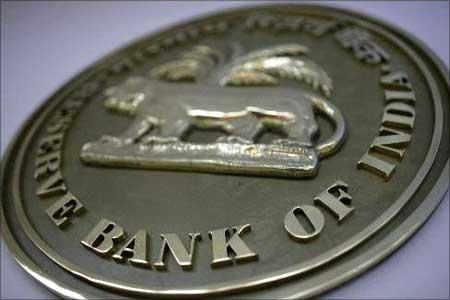
Banking & Financial services
There are hopes of an increase in limit for tax deduction on interest on home loans from Rs 150,000 to Rs 250,000, which could spur demand for home loans to the benefit of banks and housing finance companies.
While SBI has set the consolidation run amongst public sector banks, any initiatives in this regard should improve market sentiments towards public sector banks. There are expectations of bold steps like lowering small-saving rates, which could indirectly lead to lower cost of funds for banks.
Measures like hiking FII holding limits in PSU banks, removal of voting rights cap (10 per cent currently) for FIIs in banks and increase in FDI limit in insurance sector to 49 per cent would make it easier for financial institutions and banks to raise capital for their expansions.
On securities transaction tax, experts believe that steps to phase it out or even reduce it would help improve trading volumes, which will benefit broking firms. Any move allowing higher deduction on interest earned from lending to infrastructure projects will lower the effective tax rate for lenders.

Capital goods
The increase in infrastructure spending, emphasis on power generation capacity addition and efforts to revive the economy are positive for companies like BHEL, ABB, Crompton Greaves and L&T.
Expectations of higher spending on rural electrification and other schemes such as RGGVY, which is in line with the objective of strengthening India's transmission network, distributing power to deficit areas and to reduce T&D losses, should lead to higher opportunities for Areva T&D, ABB, Kalpatru Power, Jyoti Structures, KEC
International, Emco and ICSA. If the 30 per cent export subsidy benefit on shipbuilding activities is extended, it will be good news for ABG Shipyard, Bharati Shipyard and L&T. Any visible increase in defence spending will rub positively on BEML and BEL.

Infrastructure & Construction
Infrastructure is one sector where expectations are the highest. Companies are hoping for measures to resolve issues pertaining to delays in project execution, project funding, high interest cost and lower than planned spending on various segments.
On a macro level, higher budgetary allocation for irrigation, road, port and, rural and urban infrastructure projects could provide the desired flip to the sector.
Analysts believe there could be more action in the irrigation and road segments, which could be positive for IVRCL Infra, HCC, Nagarjuna Construction and IRB.
An increase in the viability gap funding limits is also expected and is seen as a step towards improving the fund-flow for projects.
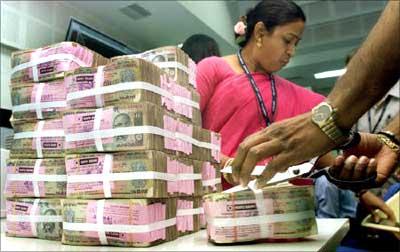
Additionally, any measures like bringing infrastructure bonds under Section 80C and re-introduction of Section 10 (23)(G), which could allow banks to claim the interest earned on long-term lending to infrastructure projects as tax deductible, would partially ease funding worries.
Initiatives to improve the execution pace of projects (various clearances, faster land acquisitions) are also on the wish list.
There are hopes of Section 80-IA benefits being extended to main contractors (now available to developers), which will help to reduce their tax liability.
The re-introduction of Section 80M, which allows deduction of dividends received from subsidiaries for computing dividend distribution tax at the parent company's level, could be positive for companies carrying out their business through separate subsidiaries or SPVs like GMR, Jaiprakash Associates, L&T and IVRCL among others.

Metals
Increased infrastructure spending should lead to higher demand for long-steel products. Companies, which have a higher proportion of long products in total sales, such as SAIL, JSW Steel and Tata Steel could benefit. The industry is expecting import duty on steel and aluminium to be doubled to 10 per cent, which will protect domestic steel manufacturers against cheap imports from China (China gives 9 per cent rebate on export of HRC) and CIS countries.
Such a move will also help non ferrous players like Nalco, Hindalco and Sterlite Industries. Expectations of a hike in export duty on iron ore to control domestic prices and improve raw material availability for steel makers are also there.
While such a move would be negative for Sesa Goa, it would be positive for companies like JSW Steel which do not have captive iron ore mines. Any move to deregulate coal mining will not only improve coal availability, but also help companies in improving their profitability and give them comfort to enhance capacities.

Oil & Gas
Crude oil prices at $70 a barrel suggest that under-recoveries, although lower than in 2008-09 (Rs 103,000 crore), would work out to Rs 50,000 crore (Rs 500 billion). The oil marketing companies (OMC) are losing Rs 6 per litre and Rs 2 per litre on petrol and diesel, respectively. Besides OMCs, upstream companies and the government (oil-bonds) would have to chip in majorly.
A full deregulation of fuel prices looks distant; however, there are expectations that retail fuel prices (say up to crude oil price of $75) would be partially de-regulated. If this comes through, it will be positive for OMCs. The move would also help private players like Reliance Industries as it creates a level playing field.
For ONGC, deregulation would lower its subsidy outgo. ONGC could also benefit if gas prices are hiked. A tax holiday for natural gas producers from NELP blocks will be positive for companies like Reliance Industries, while inclusion of natural gas as declared goods would benefit companies like Indraprastha Gas.

Power
The power sector, which is already facing headwinds on account of project delays, is expecting measures towards improving implementation.
Allowing private sector companies into the mining space could reduce problems of fuel supplies. An increase in funding ceiling for banks could partly sort the funding issues. Besides, there are demands for exemption of import duty on power equipments for sub-1,000 mw capacity, in line with over 1,000 mw projects, which will help lower cost for such projects.
Also, there is demand for extension of Section 80-IA benefits up to 2017 (from 2010). Steps towards the implementing the Planning Commission's proposal for a national electricity fund with a corpus of Rs 150,000 crore (Rs 1,500 billion) for investment in the T&D space will provide a major boost to equipment suppliers.

Software
The slowdown in the US and Europe (account for 60 per cent of India's software exports) has put tremendous pressure on domestic IT companies, especially the smaller outfits. Extending the tax benefits for software technology parks of India beyond March 2010 should help this labour intensive sector. Abolishing the FBT would also reduce some of pressures.

Telecom
For a sector that is adding over 11 million subscribers a month, growth is a given. The issue for telecom operators, who service over 450 million subscribers currently, is profitability. Service providers want the government to rationalise multiple levies (spectrum charges, licence fee and service fee) into a unified, single levy on revenue.
Operators want the tariffs which varies between 24-32 per cent to come down to levels in other Asian economies (below 10 per cent of revenues), says the COAI.
The association wants the government to reverse the provision inserted in the Budget for 2007-08, which denied tax benefits for amalgamation or demergers taking place after March 2007.
Further, COAI has asked for the tax benefits under Section 80-IA to be extended to new entrants, in line with services which commenced prior to April 2005.
The industry also wants the PAN requirement to be abolished as it is a hurdle in marketing mobile services to low-end subscribers. A reduction in duty on handsets has also been sought as operators prepare to penetrate the rural market.

Miscellaneous
The realty sector, which has been grappling with the collapse in demand and high debt, wants a hike in tax deduction on interest payment on home loans to Rs 2,50,000 a year, exemption of rentals on commercial properties from service tax and tax breaks for affordable housing projects.
A defensive sector, the healthcare industry has been growing at lower double digits.
The sector wants weighted deduction on research to be extended beyond 2010 and extend benefits on activities such as clinical trials and bio-equivalence studies done outside the research facility, reduction in excise duties of inputs (which are at 8 per cent even as formulations attract 4 per cent), extend tax holiday for hospitals in Tier 2 and 3 cities to 10 years, extend benefits under section 10A/10B to pharmaceutical exports beyond 2010-11 and finally, increase list of life saving drugs eligible of exemption from customs duty.
The textile industry, which has been impacted due to the slowdown in the US and Europe, is expecting measures that would help it stay profitable and competitive vis-a-vis countries like China.
They are hoping for a hike in duty drawback rate, cut in duties on machinery, increase in TUF allocation and interest rate subsidies among others.